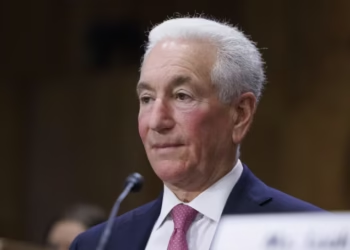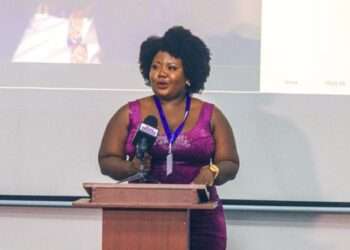Victor Kwadjoga Adawudu has urged the government to abandon its confrontational stance against MultiChoice Ghana and instead embrace dialogue as the best path toward resolving the impasse over DSTV subscription pricing.
The member of the NDC’s legal and communications team cautioned against adversarial tactics and called on the Ministry of Communications, Digital Technology and Innovation to consider the economic and operational realities of the broadcaster.
Adawudu, speaking on the matter following the recent ultimatum by Minister Hon. Samuel Nartey George, acknowledged the legitimacy of the state’s demand for fair pricing. However, he advised that the Minister should take a balanced view of the issues at stake.
“For me, I think we should be able to persuade the Minister to consider the challenges and difficulties the company is facing in issues of pricing structures, operational costs, and the nature of their service”
Victor Kwadjoga Adawudu, Legal and Communications Team Member of the NDC
He questioned whether the Minister had fully appreciated the situation from a business perspective. “If he were the owner of DStv, how would he feel?” Adawudu asked.

While accepting the regulatory role of the Communications Ministry, Adawudu argued that the emphasis should be on constructive engagement that does not alienate investors or damage Ghana’s reputation as a viable investment destination.
He emphasised the need for mutual understanding between the regulator and the broadcaster.
“He’s coming from the perspective of being a regulator, which is fair. But when two parties clash, everyone suffers. That’s not what we want – All we’re asking for is fair pricing”
Victor Kwadjoga Adawudu, Legal and Communications Team Member of the NDC
He also appealed to the Ministry to facilitate negotiations that serve the long-term interests of both consumers and service providers.
Investment Risk Warnings
Concerns about the possible fallout from the Minister’s aggressive approach were echoed by former Okaikwei North MP, Fuseini Issah.

He expressed fears that the ultimatum issued to MultiChoice Ghana could create uncertainty and alarm among potential investors. Issah criticised the tone and manner in which the government was handling the matter.
“If you are fighting DStv publicly, I don’t see how another company will find this environment attractive enough to bring their investment.
“You don’t know how this is going to affect the business environment in Ghana and our foreign investment. I think we should find cool heads, go back to the table, and resolve this matter”
Fuseini Issah, Former Okaikwei North MP
His remarks follow a directive from Samuel Nartey George, the Minister of Communications, Digital Technology and Innovation, instructing the National Communications Authority to suspend MultiChoice Ghana’s broadcasting licence if the company does not reduce DSTV subscription fees by 30% before August 7.
The Minister justified the ultimatum by citing favourable macroeconomic indicators, noting that despite inflation having declined and the cedi strengthened, DSTV’s pricing had not adjusted to reflect the economic reality.

However, MultiChoice Ghana rejected the call for a 30% price cut. The company maintained that while it is committed to making its services affordable, the economic climate does not support such a significant reduction.
The directive and expectation of the Minister has sparked significant public debate, with industry experts and political figures warning of reputational and economic risks if the government follows through with the suspension threat.
One such voice was Appiah Kusi Adomako, West African Regional Director of CUTS International, who warned that the ultimatum could discourage potential investors. His concerns align with the broader call for a more temperate, negotiation-led approach rather than regulatory force.
As Ghana navigates its economic recovery and reset under President John Dramani Mahama, observers say the government must balance assertive policy with measured diplomacy.
The DSTV case, according to many, presents a test of how far regulation can go without undermining investor confidence.
READ MORE: MIIF Partners Korle-Bu to Roll Out Free Medical Outreach in Mining Communities



















